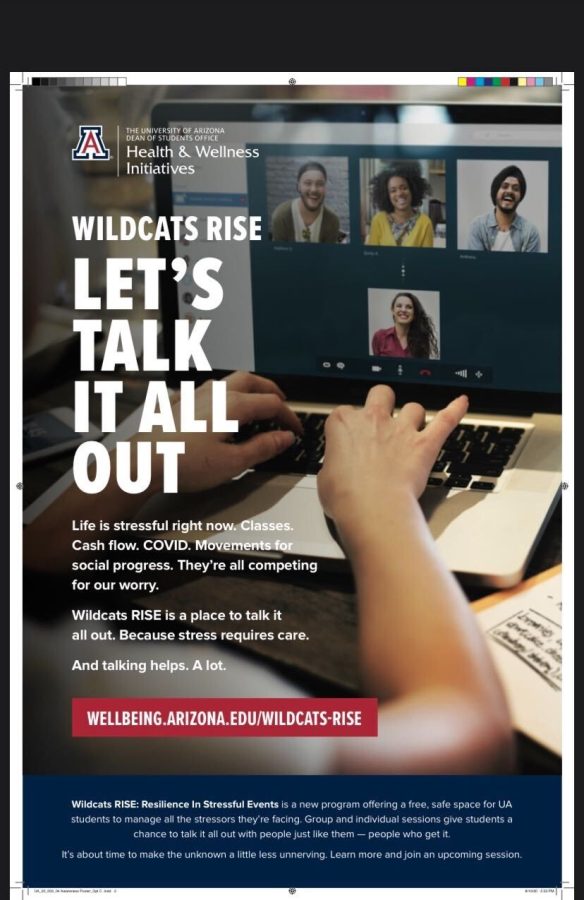The new program is called RISE, which stands for Resilience in Stressful Events. RISE offers students what’s known as psychological first aid in a confidential and safe environment, and UA Associate Vice Provost and Chief Wellness Officer Amy Athey is one of the developers of the program.
“We recognized from the research that the mental health demands typically outweigh the physical health demands from critical instances such as pandemics and certainly the racial injustices that have occurred,” said Athey.
RISE launched last week, and since then, has trained over 22 Peer Leaders to offer Psychological First Aid support for both undergraduate and graduate students, according to Athey.
PFA is evidence-informed support designed to strengthen one’s healthy coping practices, mitigate distress and facilitate access to continued care — it is not considered a psychological treatment.
PFA’s purpose is to educate participants about normal psychological responses to stress and trauma, offer an active listening space, provides an understanding of the importance of self-care, educates participants on when they may need support from a professional and provides resources and referrals.
RELATED: What experts say about mental health during times of social and political tension
“We really wanted to round out additional mental health support for our students, and psychological first aid is the standard practice in meeting those large-scale mental health demands,” Athey said.
Students can sign up for meetings for psychological support at their website.
“The meetings are co-led by peers to offer support for students who may be feeling stressed given current events that are going on for them,” Athey said.
Each group session will be co-led by two RISE Peer Leaders and they offer service to a maximum of 10 students. However, beyond the group sessions, students can also sign up for individual consultations to speak to a RISE peer-leader in a one-on-one zoom session to receive additional support.
Both the group and individual sessions are free. Students can also sign up to be a Peer-Leader.
The application can be found on their website and it is for students looking to get involved and support others during this time of uncertainty. Peer-Leader is a micro-internship which provides leaders with comprehensive training from the International Critical Stress Foundation.
The training focuses on rapport building, active listening skills, assessment and psychological triage. Athey explained that a goal of theirs is to grow the program as more students find it helpful.
“We have students that are interested in getting the training and expanding the program so I would like to see the opportunity for us to build off that program in the future,” she said.
They had over 90 students apply to be RISE Peer-Leaders, and they trained just over 20 of them. RISE’s message is to talk it out because talking helps, especially when you’re talking to someone who gets it.
“It is an opportunity for us to provide greater access to mental health and wellness support for our students,” Athey added.
Follow Jillian Bartsch on Twitter









